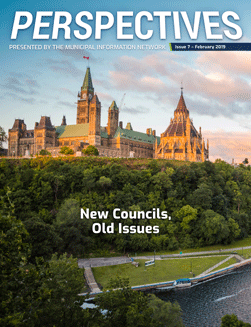The City of London conducted the first municipal election in Canada using a Ranked Ballot.
The Province of Ontario undertook a number of changes to the Municipal Elections Act, 1996 (MEA) through the Municipal Elections Moderation Act, 2016 (MEMA). One of the most significant changes was the provision to permit municipal councils the opportunity to use ranked ballots for the election of municipal council representatives as an alternative to the first-past-the post system.
On May 1, 2017, despite the City Clerk's recommendation to the contrary, the City of London Municipal Council passed a By-law, after undertaking public consultation, to provide for the 2018 Municipal Elections and future Municipal Elections to be conducted using a ranked ballot. A ranked ballot allows a voter to rank candidates in order of preference (1st choice, 2nd choice, 3rd choice) instead of just voting for one candidate, with the winning candidate requiring to achieve 50% plus one of the votes cast through a transfer of second and third choice selections contained on the ballot.
This decision left the City Clerk and the election staff with very little time to prepare for the October 22, 2018 Municipal Election. A number of challenges faced us, including the late release of Provincial regulations related to a ranked ballot election in the fall of 2016, leaving approximately one year to consult with the public and prepare the by-law and procedures governing ranked ballots in addition to sourcing a technical solution.
The challenges included;
- No proven technology for voting equipment to conduct a ranked ballot election in an Ontario legislative context resulting in no vendor submitting a response to our Request for Proposal. Instead, we reached out to vendors we had previously contracted with to understand the challenges before them. In late 2017, we were able to enter into a contract with a vendor for the provision of vote count tabulators and software complete with an algorithm to conduct a count in accordance with Provincial Regulations. The degree to which the technology was tested was enhanced additional testing phases which included holding of a mock election in the spring of 2018, the acceptance testing all tabulators in July of 2018 to ensure the equipment was in good working order and testing again of all tabulator for logic and accuracy with respect to the count results in September 2018.
- Communicating with and educating the public to ensure to the best of our ability, that the candidates and the community were aware of the change in the voting process. In response, elections staff held two candidate information sessions, attended over 160 community events throughout March to September 2018 and conducted demonstrations for the media. An enhanced communication effort through the media, the City's website, billboards and bus advertisements throughout the City was also undertaken with the assistance of a seconded member of the City's Communications staff who was dedicated solely to the election for a year.
- Setting expectations as to how the results would be released in a ranked ballot election also had its challenges as the media and the public were frustrated that the results would be slower. Many assumed that results would be released in a similar manner to that of a first-past-the-post election where results are provided as Polls report in. However, in ranked ballot election, all results must be counted in order to determine the 50 percent + one vote threshold therefore making poll by poll reporting not possible. In addition, given that it was important to be transparent and clear how the transfer of votes occurred in subsequent rounds, the City Clerk chose a single candidate elimination process. For example, in the Mayor's race, we had fourteen candidates, resulting in fourteen rounds of counting. To address these concerns the elections staff met with the media to provide detailed information on what to expect on election night and the day after. We also increased our presence on social media platforms throughout the count process to update the media and the public on what was happening and what to expect next. Our information sessions held throughout the community also addressed the timing of results.
In order to address some of our challenges, election staff reached out to municipalities in the United States who had conducted ranked ballot elections and in particular Minneapolis, to learn from their experience and we are extremely grateful for the advice given.
We also determined that retaining an Auditor with experience auditing a ranked ballot election would be helpful. The Auditor observed and commented on our processes and procedures, assisted with the functional testing of the ranked ballot voting system and observed Election Day activities and counts.
From a Returning Official's perspective the election matters related to the ranked ballot process was successful. The tabulators and the voting system functioned in accordance with Provincial legislation and regulations with no issues. Whether or not the public fully understands the ranked ballot process is still up for debate, but it was evident from the comments received at the Polls and the election results that generally speaking the public understood there was a change in the election process, with some electors choosing to rank their candidates.








